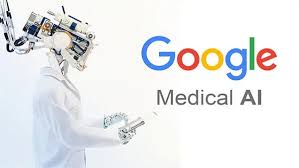
Ola Akinwunmi
In a groundbreaking move poised to transform the landscape of scientific inquiry, Google has introduced an AI-powered tool designed to function as a “co-scientist” for researchers.
This innovative assistant aims to expedite biomedical discoveries by identifying knowledge gaps and generating novel hypotheses.
Developed by Google’s AI division, DeepMind, the tool has undergone rigorous testing in collaboration with esteemed institutions such as Stanford University and Imperial College London. In these trials, the AI demonstrated remarkable capabilities, including independently hypothesizing a new gene transfer mechanism and suggesting potential therapeutic approaches for liver fibrosis.
These achievements underscore the AI’s potential to augment human expertise, offering fresh perspectives and accelerating the research process.The AI co-scientist operates by employing multiple AI agents that emulate the scientific process: generating and reviewing ideas, analyzing vast datasets, and synthesizing information from extensive scientific literature.
This collaborative approach not only enhances the efficiency of research but also fosters a synergistic relationship between human scientists and AI, leading to more robust and innovative outcomes.
Vivek Natarajan, a leading scientist at Google, emphasized that the tool is designed to complement, not replace, human researchers. “Our goal is to empower scientists by providing them with advanced tools that can handle complex data analysis and generate insights at a speed and scale previously unattainable,” Natarajan stated.
“This collaboration between human intuition and machine intelligence holds the promise of accelerating scientific breakthroughs.”
This development is part of a broader trend where technology giants are increasingly investing in AI to revolutionize various industries. DeepMind’s CEO, Demis Hassabis, who recently received a Nobel Prize in Chemistry for related technological advancements, highlighted the transformative potential of AI in scientific research.
“AI has the capacity to not only enhance our understanding of complex biological systems but also to drive the discovery of new treatments and therapies,” Hassabis remarked.
As AI continues to integrate into the scientific community, it is anticipated that such tools will become indispensable in laboratories worldwide, ushering in a new era of accelerated discovery and innovation.
